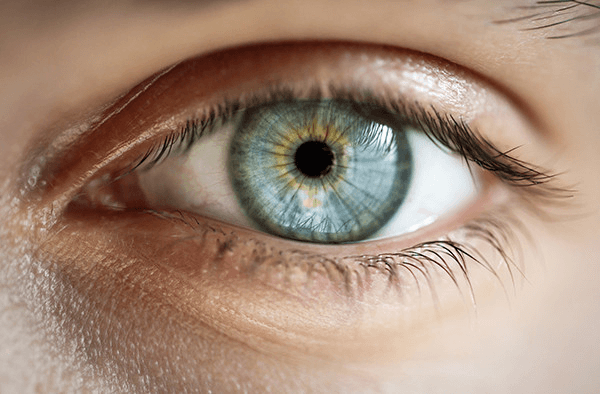How To Prove Disability In A Brain Injury Claim
Proving disability in a brain injury claim is crucial to securing the compensation you deserve. Brain injuries, whether mild or severe, can have a lasting impact on your ability to work, care for yourself, and lead a normal life.
To successfully claim disability benefits, it’s essential to provide comprehensive evidence that demonstrates the extent of your injury and how it affects your daily activities.
In this guide, we’ll walk you through the critical steps needed to prove disability in a brain injury claim, ensuring you’re well-prepared to navigate the legal process.
Reach out to us today on 0800 0747 644 or complete a Free Online Enquiry to tell us more about your situation.
Or keep on reading to learn the essentials of brain injury claims.
“I can’t think of any way you could improve your service as I have found everything from start to finish first class.”
Understanding Brain Injury And Its Impact On Disability
Brain injuries can vary significantly in severity and impact. From traumatic brain injuries (TBIs) caused by a severe blow to the head to concussions and other forms of head trauma, the effects can range from mild cognitive impairment to complete loss of certain physical or mental functions.
Common symptoms include memory loss, difficulty concentrating, chronic headaches, and even changes in personality or mood. These symptoms can lead to substantial limitations in daily activities, potentially resulting in long-term or permanent disability.
The Legal Definition Of Disability In Brain Injury Claims
In the context of UK personal injury law, disability is generally defined by the extent to which an injury affects an individual’s ability to perform work and carry out everyday activities.
To prove disability in a brain injury claim, you must demonstrate that the injury has caused either partial or total loss of functionality.
This could mean that you are unable to return to your previous employment or that your ability to work is significantly reduced. The distinction between partial and total disability will influence the compensation you may receive, so it’s essential to clearly establish the severity of your condition.
Key Evidence Required To Prove Disability
To successfully prove disability in a brain injury claim, gathering substantial evidence is critical. This includes:
- Medical Documentation: Comprehensive medical records are vital. These should include detailed reports of your injury, ongoing symptoms, and the prognosis provided by your healthcare providers. Neuroimaging results, such as MRI or CT scans, can visually demonstrate the extent of the brain damage.
- Expert Testimony: Testimonies from medical professionals, particularly neurologists and psychiatrists, carry significant weight in proving disability. Their expert opinions on how the brain injury has affected your cognitive and physical abilities can be pivotal in establishing the severity of your condition.
- Occupational Impact Assessments: Reports from occupational therapists and work capacity evaluations provide concrete evidence of how your brain injury affects your ability to perform job-related tasks. This is especially important if your injury prevents you from returning to work or limits your employment options.
Gathering Witness Testimonies
In addition to medical evidence, witness statements can be invaluable in proving disability. Family members, colleagues, and employers can provide insights into how your injury has affected your day-to-day life and your ability to work.
These testimonies help paint a fuller picture of your struggles and the changes in your behaviour or capabilities since the injury. To ensure these statements are credible, they should be detailed and consistent with the medical evidence provided.
Common Challenges In Proving Disability
Proving disability in a brain injury claim is not without its challenges. One of the most significant obstacles is establishing a clear link between the brain injury and the resulting disability. Insurance companies and legal representatives of the opposing party may attempt to downplay the severity of your injury or argue that the disability is unrelated to the incident.
Overcoming these challenges requires thorough medical documentation, expert testimony, and, often, the support of an experienced personal injury solicitor who can help build a strong case.
The Role Of Legal Representation
Navigating the complexities of a brain injury disability claim can be overwhelming, especially when dealing with the physical and emotional toll of the injury itself. A personal injury solicitor with experience in brain injury claims can provide invaluable assistance.
They will ensure that all necessary evidence is gathered, liaise with medical professionals, and represent your best interests throughout the legal process. Having a skilled legal team on your side increases your chances of a successful claim and maximises the compensation you receive.
Proving Disability
Proving disability in a brain injury claim requires meticulous preparation and a clear understanding of the legal requirements. By gathering robust medical evidence, expert testimony, and credible witness statements, you can build a strong case to demonstrate the full extent of your disability.
Remember, the support of an experienced solicitor can make all the difference in navigating the legal challenges and securing the compensation you need.
If you or a loved one has suffered a brain injury and are struggling to prove disability, contact Grieves Solicitors today for expert advice and dedicated support.
Reach out to us today on 0800 0747 644 or complete a Free Online Enquiry to tell us more about your situation. Or keep on reading to learn the essentials of brain injury claims.
Here at Grieves Solicitors, Personal Injury Specialists, we offer a no win, no fee solution to funding your claim (a conditional fee agreement) which means that you do not have to worry about legal costs and expenses. You can read about our no win, no fee agreement here.
Let us help you





